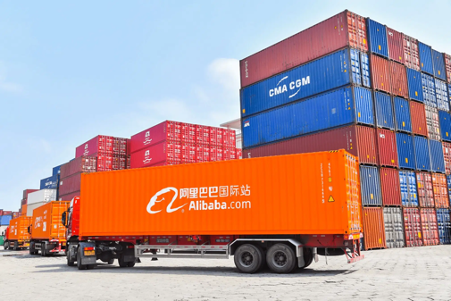Sourcing through Alibaba: Key Considerations for Success
For both seasoned and novice buyers, product sourcing often begins on Alibaba—a platform that has evolved into the go-to destination for products made in China. While there are other variants, such as "Made-in-China," "Gateway," etc., Alibaba Group encompasses a wide array of internet-based businesses focused on e-commerce. These include business-to-business web portals, online retail, payment services, price comparison search engines, and cloud data services.
With a revenue of $39 billion in 2018, Alibaba is inching closer to Amazon, which recorded $232 billion in revenue the same year. Alibaba stands as the sole e-commerce company worldwide currently capable of competing with Amazon.
Communication
You’ve found your first product/supplier—congratulations! Now, how does communication happen? Consider the time difference between the Benelux and China, which is 6 or 7 hours. Are you communicating with the supplier through the platform or are you attempting to reach them via WhatsApp? Since 2017, WhatsApp has been blocked in China, so it's best to set up a WeChat account. WeChat also offers the ability to translate messages from English to Chinese and vice versa, but beware: setting up WeChat outside China can be challenging, with new accounts often getting blocked, requiring you to start from scratch.
Does the supplier possess sufficient English proficiency to meet your requirements? Language remains a significant barrier in the negotiation process; suppliers often say "yes" to everything without fully understanding the requests.
Is the seller well-informed about your order details? How smoothly does the conversation flow, and do you understand each other? It is crucial to discuss important aspects like delivery time, incoterms, and product description clearly, ensuring both parties are on the same page. A golden tip: describe everything in the purchase order with meticulous detail.
Payment terms
Chinese manufacturers usually propose "30/70" payment terms: a 30% upfront payment before production begins, and the remaining 70% upon completion. Tip: ensure you have a clear insight into the quality and delivery of your products before making the 70% payment. Engage with a representative before transferring the full amount.
Once all payments are settled, the responsibility of the Chinese manufacturer diminishes. They often prioritize ‘swift shipping’ to make room in the warehouse for other products. Every square meter counts, and the longer your products sit in the warehouse, the longer that space remains unavailable for new products, leading to increased rent expenses. As soon as your products leave the warehouse, you lose control over their quality. Conduct a thorough quality check before shipping your products to Europe; fixing a defective product already in transit is challenging!
Producer or seller? Check the business license!
The line between a trading company and a manufacturer can be quite thin. In many cases, when dealing with Alibaba and similar platforms, you might communicate with a trading company that lacks production capacity, but is connected to a specific product's manufacturer. This intermediary can drive up prices and dilute your order details and requirements. Tip: inquire on the platform whether they are a trading company or a manufacturer and perform a background check! In many instances, they may claim to be manufacturers to please you, so ask for a copy of their business license. Photos of their warehouse and workspace are also valuable.
When visiting a supplier's personal page on Alibaba, you can access the account manager's details. Below is an example where the company is a factory and not an intermediary.
If you can obtain the 'business license,' pay close attention to the 'Business Scope' section, which outlines all the services the company is authorized to provide. If you're seeking, for example, auto parts, ensure the company is legally allowed to engage in this business and is most likely the manufacturer, not an intermediary.
“Affordable” logistics
Many manufacturers offer their own logistics services, presenting an opportunity for them to upsell. Often, the manufacturer has a friend with a transport company to whom they plan to outsource the logistics. Tip: ask for the CBM volume, number of boxes, sizes, and verify the prices with an external carrier or a forwarder.
When to involve a professional?
Sourcing through Alibaba can be time-consuming, frustrating, yet exciting. As your procurement volume grows, the risk of receiving partially finished or lower-quality products increases, making it challenging to handle everything on your own. Conducting physical inspections yourself is usually a hassle, especially if you have never been to China. Negotiating from a distance with a different culture, which is uncommon in China (a place where the best contracts are signed and discussed face-to-face), adds to the complexity. Opinions on quality may differ, and you cannot negotiate in your native language.
This is the ideal moment to engage a trade agent proficient in both your language and the local language in China. A trade agent can become an extension of your procurement department on-site in China. They possess the experience, grasp the local culture, have established the right connections, employ specific negotiation techniques, understand European quality standards, and are close to your productions for regular inspections. Don’t hesitate to reach out!



